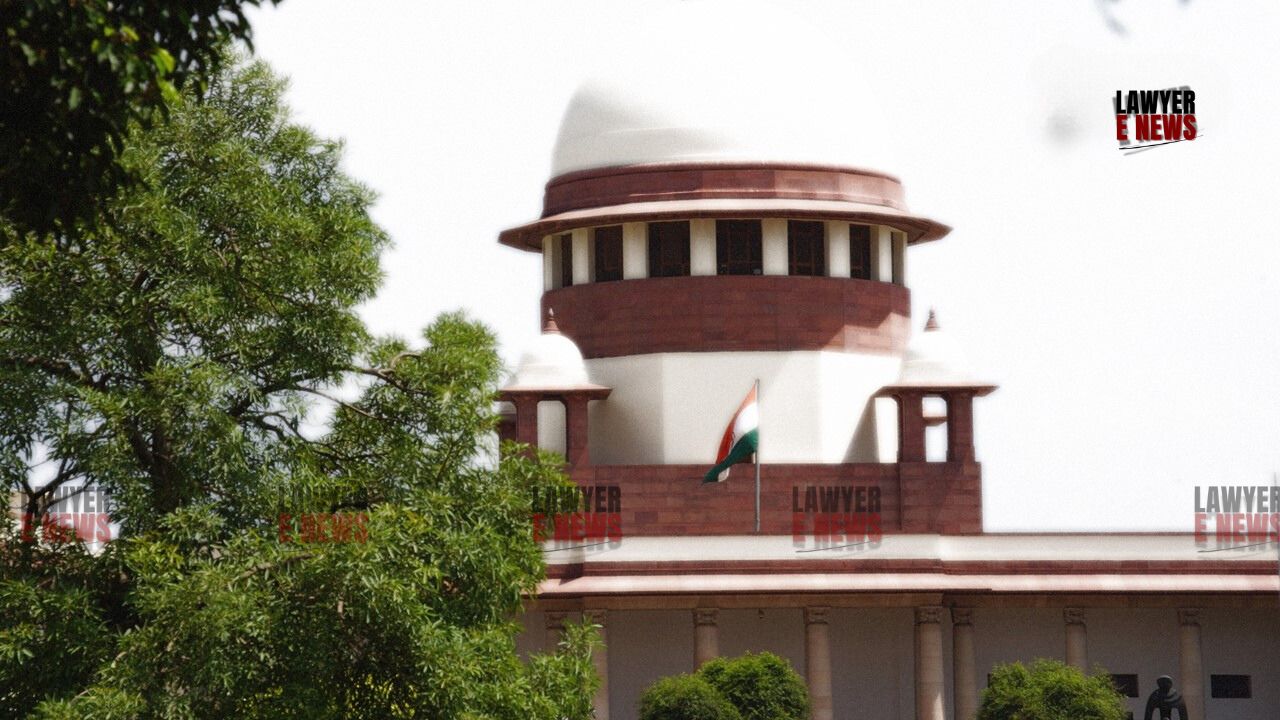-
by Admin
15 February 2026 5:35 AM



Supreme Court of India delivered a significant judgment, setting aside the High Court’s order that had directed issuance of summons against the appellant under Section 319 of the Code of Criminal Procedure (CrPC), 1973. The Bench, comprising Justice Abhay S. Oka and Justice Augustine George Masih, clarified the evidentiary threshold required to summon additional accused under Section 319 CrPC. The Court emphasized that cross-examination evidence must also be considered when the application under Section 319 is filed post-cross-examination.
The appellant, Hetram @ Babli, was implicated in a murder case based on depositions by two prosecution witnesses, PW-2 Sona and PW-4 Seema, who claimed to have seen the appellant striking the deceased on the head with a spade. The application under Section 319 CrPC, filed by the second respondent, sought to summon Hetram as an additional accused. However, the Trial Court, on February 6, 2015, rejected the application, observing that the allegations lacked sufficient merit.
The High Court of Rajasthan reversed this decision in its judgment dated February 8, 2023, holding that the examination-in-chief of the witnesses sufficed to meet the threshold for summoning the appellant. Aggrieved by this order, Hetram approached the Supreme Court.
The central issue in the appeal was whether the evidence on record justified the exercise of power under Section 319 CrPC to summon the appellant as an additional accused. The provision empowers the court to summon a person who appears to have committed an offence based on evidence emerging during trial. However, as the Supreme Court reiterated, the evidentiary standard required under Section 319 CrPC is higher than mere prima facie evidence.
Justice Oka, referring to the seminal judgment in Hardeep Singh v. State of Punjab (2014) 3 SCC 92, observed:
“The test to be applied for dealing with the application under Section 319 of the CrPC is of more than a prima facie which is required to be considered at the time of framing of the charge. The Court must record satisfaction that if the evidence goes unrebutted, it would lead to conviction.”
In the present case, both PW-2 and PW-4 testified in their examination-in-chief that the appellant attacked the deceased. However, the cross-examination revealed material omissions that contradicted these statements. Justice Oka noted, “In view of the omissions which are material and which amount to contradiction, no Court could have recorded satisfaction contemplated by Section 319 of the CrPC.”
The Court further clarified the significance of cross-examination, stating that applications filed after the cross-examination of witnesses must consider the contradictions emerging therein. Ignoring such evidence would render the process unjust and contrary to the legislative intent of Section 319.
Analyzing the evidence, the Supreme Court found that the allegations in the examination-in-chief of PW-2 and PW-4 were contradicted during their cross-examination. The Court observed that both witnesses admitted to omissions in their earlier statements, which undermined the prosecution’s case against Hetram. Additionally, the Court stressed that summoning a person as an additional accused requires more than speculative or unsubstantiated allegations.
“The power under Section 319 of the CrPC cannot be exercised when there is no case made out against the persons sought to be implicated. It is impossible to record a finding that even a prima facie case of involvement of the appellant has been made out.”
The Court quashed the High Court’s order dated February 8, 2023, and restored the Trial Court’s decision rejecting the application under Section 319 CrPC. The appeal was allowed, with the Bench expressly stating that its observations were limited to the context of Section 319 and would not affect the trial proceedings against other accused.
The Supreme Court’s judgment in Hetram @ Babli v. State of Rajasthan reinforces the strict evidentiary standard required for invoking Section 319 CrPC. By emphasizing the need to consider cross-examination evidence and ensuring that material contradictions are not ignored, the Court has provided clarity on the procedural safeguards against arbitrary inclusion of additional accused in criminal trials.
This judgment will serve as a guiding precedent for the judiciary in balancing prosecutorial powers under Section 319 CrPC with the fundamental rights of individuals against unjust prosecution.
Date of Decision: November 20, 2024
